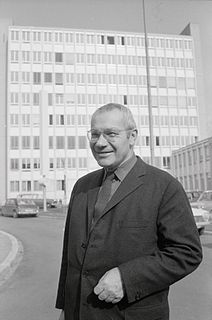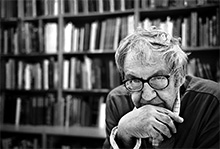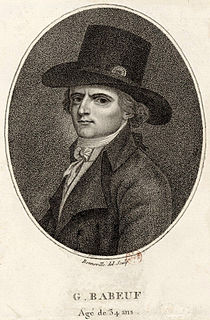A Quote by Henri Matisse
A distinction is made between artists who work directly from nature and those who work purely from imagination. Neither if these methods should be preferred to the exclusion of the other. Often both are used in turn by the same man.
Related Quotes
I started out as a fashion photographer. One cannot say that I was successful but there was enough work to keep me busy. I collaborated with Harper's Bazaar and other magazines. I was constantly aware that those who hired me would have preferred to work with a star such as Avedon. But it didn't matter. I had work and I made a living. At the same time, I took my own photographs. Strangely enough, I knew exactly what I wanted and what I liked.
The most important thing is that man should be the measure of all structures, including economic structures, and not that man be made to measure for those structures. The most important thing is not to lose sight of personal relationships - i.e., the relationships between man and his co-workers, between subordinates and their superiors, between man and his work, between this work and its consequences.
After years of work in both areas of study, I concluded that the social sciences were different, in many important ways, from the natural sciences, but that the same scientific methods were applicable in both areas, and, indeed, that no very useful work could be done in either area except by scientific methods.
Let the revolting distinction of rich and poor disappear once and for all, the distinction of great and small, of masters and valets, of governors and governed. Let there be no other differences between human beings than those of age and sex. Since all have the same needs and the same faculties, let there be one education for all, one food for all.
In literary representation, the distinction between the genuinely erotic and the licentious is a distinction not of subject-matter, but of perspective. The genuinely erotic work is one which invites the reader to re-create in imagination the first-person point of view of someone party to an erotic encounter. The pornographic work retains as a rule the third-person perspective of the voyeuristic observer.
The biographies of great artists make it abundantly clear that the creative urge is often so imperious that it battens on their humanity and yokes everything to the service of the work, even at the cost of health and ordinary human happiness. The unborn work in the psyche of the artist is a force of nature that achieves its end either with tyrannical might or with the subtle cunning of nature herself, quite regardless of the personal fate of the man who is its vehicle.
In comparing these two writers, he [Samuel Johnson] used this expression: "that there was as great a difference between them as between a man who knew how a watch was made, and a man who could tell the hour by looking on the dial-plate." This was a short and a figurative statement of his distinction between drawing characters of nature and characters only of manners, but I cannot help being of opinion, that the neat watches of Fielding are as well constructed as the large clocks of Richardson, and that his dial plates are brighter.
Work and play can be the same. When you are following your energy and doing what you want to do all the time, the distinction between work and play dissolves. Work is no longer what you have to do, and play what you want to do. When you are doing what you love, you may work harder and produce more than ever before, because you are having fun.
Technology is neutral and sterile. Now, technology is the nature of modern man; it is our environment and our horizon. Of course, every work of man is a negation of nature, but at the same time, it is a bridge between nature and us. Technology changes nature in a more radical and decisive manner: it throws it out.
What the essential difference between man and woman is, that they should be thus attracted to one another, no one has satisfactorily answered. Perhaps we must acknowledge the justness of the distinction which assigns to man the sphere of wisdom, and to woman that of love, though neither belongs exclusively to either. Man is continually saying to woman, Why will you not be more wise? Woman is continually saying to man, Why will you not be more loving? It is not in their wills to be wise or to be loving; but, unless each is both wise and loving, there can be neither wisdom nor love.








































